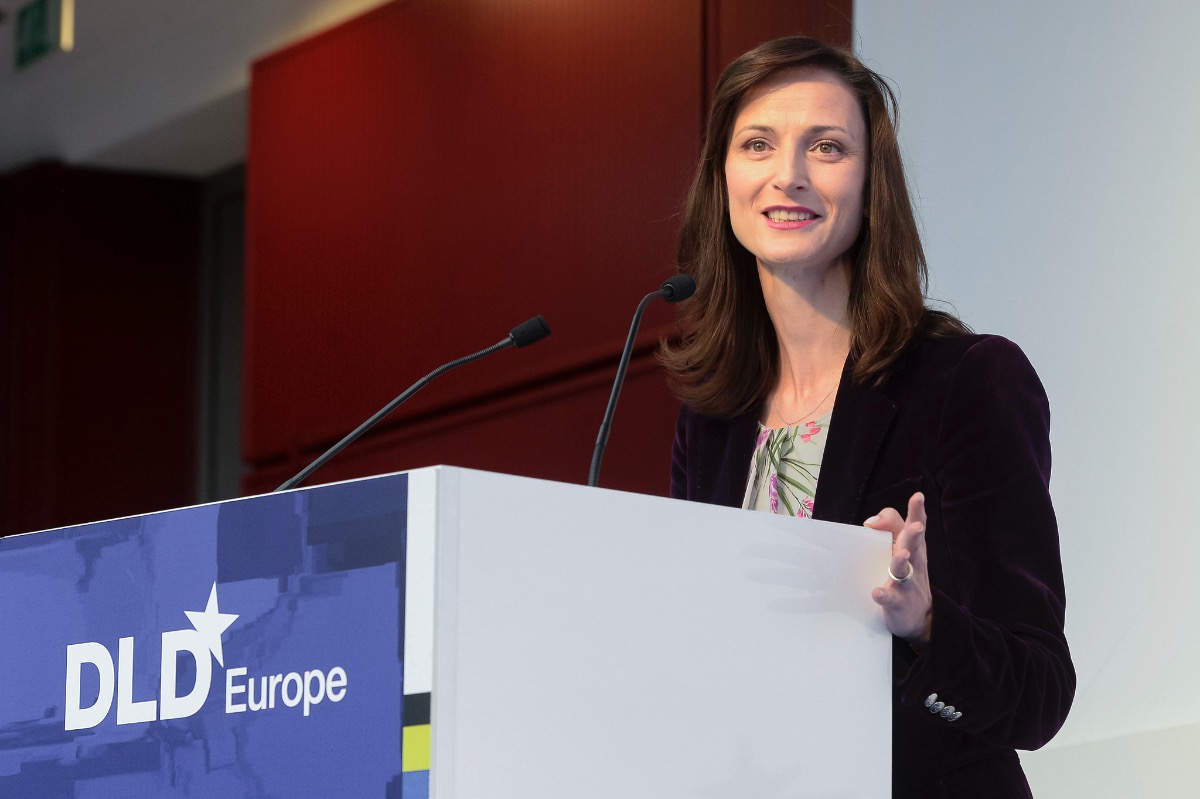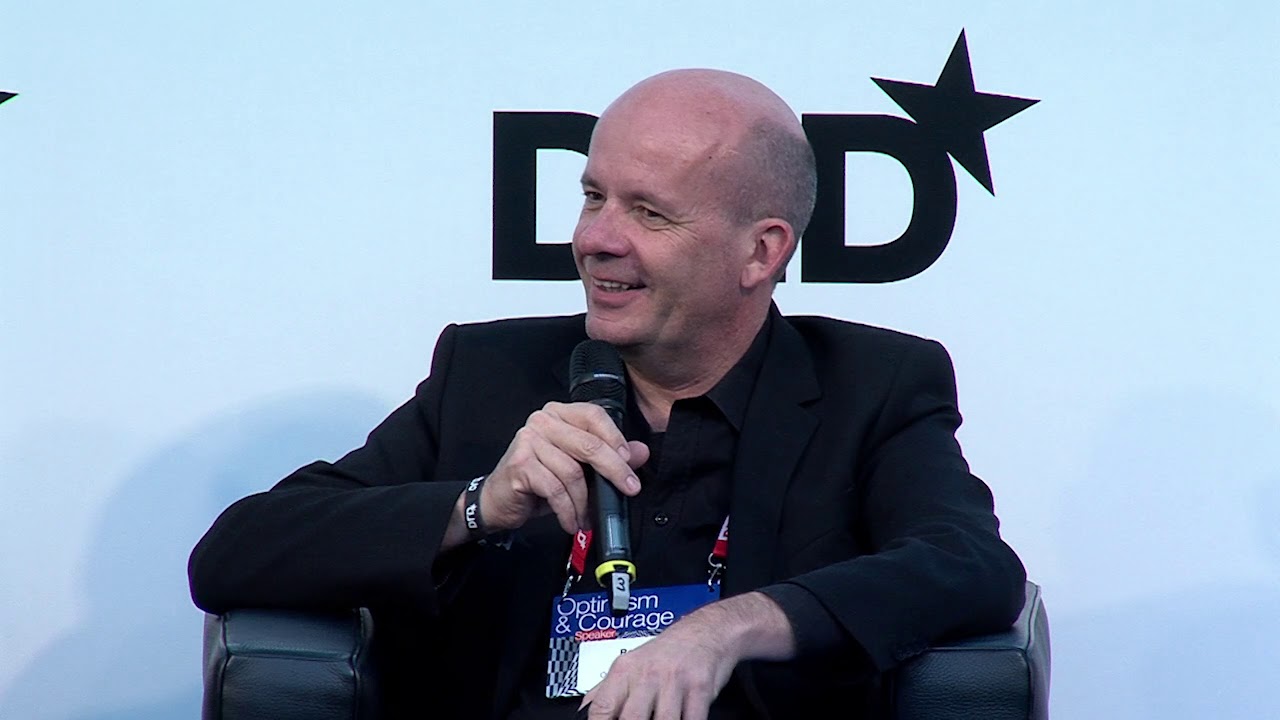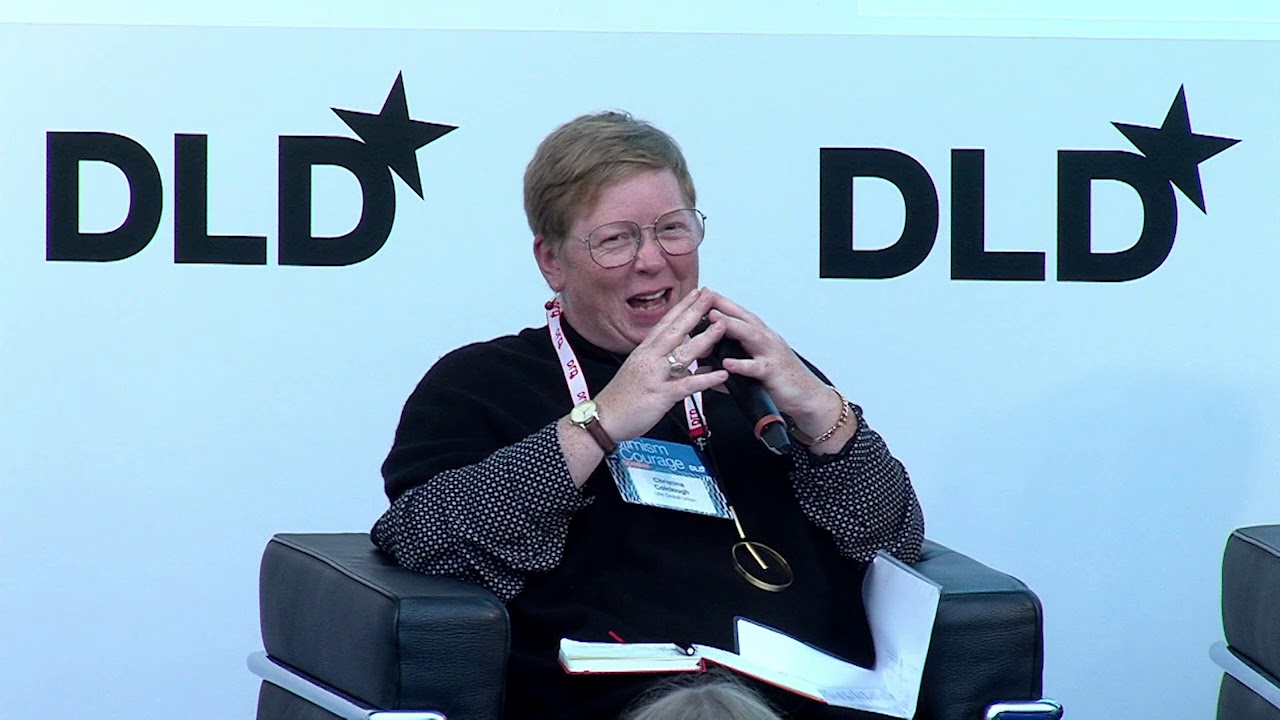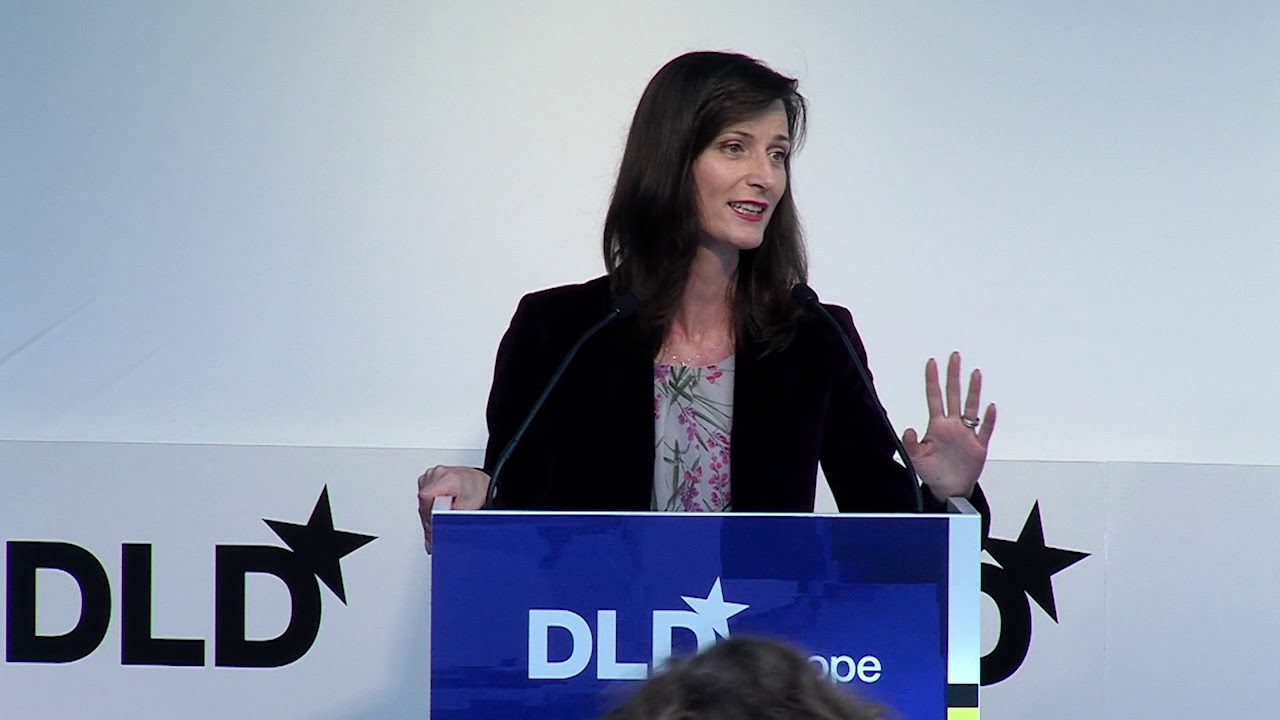
Yes, EU Can!
Making Europe more competitive in the digital world: regulation, privacy protection, entrepreneurship and more – take a look at the main topics discussed at DLD Europe 2019 in Brussels.
Europe keeps struggling to find its place in a world shaped by rapid transformation. What can the continent do to move faster and make the most of its strengths? Political choices, entrepreneurship and human values will be key to future success, DLD Europe 2019 in Brussels made clear.
On paper the European Union is an economic juggernaut, counting some 500 million citizens and 24 million companies across 28 countries. The common market’s GDP of 14 trillion euros per year results in “the world’s largest economy”, as the EU proudly points out.
And yet there’s no lack of soul searching and warnings of dire prospects should the continent fail to adapt to the many challenges of digital change.
“The European Union is at risk of falling behind in future leading technologies”, warned Michael Clauss, Germany’s Permanent Representative to the EU, in his opening keynote at DLD Europe 19 in Brussels.
With the United States and China setting the pace, at times fighting “a hegemonic conflict”, Europe was caught in-between, Clauss said, “which is a very unpleasant and uncomfortable position to be in”. One solution he proposed was to promote strategic industries “like we did with Airbus, which was a big success” – but now with a special focus on digital infrastructure and applications like Artificial Intelligence (AI).
Video: “Safeguarding Europe’s Economic Sovereignty” // Michael Clauss
Kickstarting Innovation
On a country level, Germany is trying just that. A new governmental agency, called SprinD, is tasked with supporting projects that could leapfrog existing solutions. “I’m looking for disruptive innovation that is hard to finance”, explained Rahttps://dld-conference.com/speaker/rafael-lagunafael Laguna, the agency’s Founding Director. An experienced entrepreneur himself, Laguna – also CEO of Open-Xchange – promised to help founders without micromanaging their efforts. “We give them the pieces that they don’t have”, he said, “and not do any handholding where they don’t need it.”
Equipped with a budget of one billion euros for the next ten years, the agency intends to stay nimble in part by remaining small. “We’re only going to be some 40 people and half of them will not even be fulltime employees”, Laguna said. “We will be launching little speed boats, little companies where we help innovators get access to capital and money.” Other countries, Laguna pointed out, are launching similar projects – resulting, if all goes well, in a pan-European boost to entrepreneurship. “The end game”, he said, “is to have a huge European effort.”
Video: “Enabling Tech to Leapfrog” // Rafael Laguna, Nili Shalev, Yossi Vardi
Uneven Contest
From a founder’s perspective, the conditions for growing businesses in Europe are much better today than they were just a few years ago – but there’s a lot of room for improvement, as a conversation with Nicolas Brusson and Johannes Reck showed. Brusson, CEO of French carsharing service BlaBlaCar, described how Europe’s startup scene is still lacking capital compared to the ones in China and the United States, despite much improved funding in recent years.
“If you look at the entire venture capital industry, it has grown everywhere very, very fast”, Brusson said. European startups did indeed collect a record $24.4 billion from VC investors in 2018, according to accounting firm KPMG. However, that pales in comparison to Asia and the U.S. where investors spent $93.5 and more than $130 billion, respectively. “So, sure, Europe is playing today – but we’re playing on a sixth of the capital of the U.S.”, Brusson said.
GetYourGuide co-founder Johannes Reck sees talent acquisition as the main challenge to grow his company into a global champion. “Capital is relatively mobile”, he said. “The resource we crave the most is talent.” Politics helps to give U.S. startups a headstart, he argued, because they can attract employees with stock options, which promise future wealth should the company succeed. Similar incentives do not exist in Germany, where GetYourGuide is based, putting his company at a disadvantage, Reck argued.
“The key problem is: Politicians always tell us, ‘Build the next Google, build the next Facebook!’”, he told the audience. “And what we’re saying is: We would love to. We want to build a global champion out of Germany. But please create the laws so that we can play on an even playing field with Silicon Valley.”
Video: “Developing & Retaining Talent in Europe” // Nicolas Brusson, Natalia Drozdiak, Johannes Reck, Andreas Schwab
Regulating the Data Economy
Venture investor Yaron Valler, a General Partner at Target Global in Berlin, similarly made the case that Europe was holding back entrepreneurs by having too many rules. “Over-regulation – especially over-regulation regarding privacy – is what’s going to make Europe lag behind”, Valler said. The EU’s data-protection regulation, GDPR, was “a horrible thing”, he added, because “it came out of a lack of understanding of what business is and how business functions.”
Assuming that information is a currency in the digital economy, Valler argued, “once you paid me with that currency you cannot tell me what to do with it”. Data was similar to money in that respect, Valler stated, and asked the EU to “stop treating your constitutents like children and think that you need to protect how they use their data”.
Video: “Entrepreneurship à l’Européenne // Yaron Valler, Robin Wauters
Valler’s opinion stood in contrast to a new survey presented by Anne Niedermann, Research Director of IfD Allensbach, one of Germany’s leading demographic institutes. The study showed that 77% of German Internet users who participated in the survey do not carefully review usage conditions of services like Google, WhatsApp and YouTube because accepting them is mandatory. Therefore, reading the small print is widely seen as a “waste of time”, Niedermann reported.
Given the dominant market power of some digital services, “we must doubt whether such statements of consent are voluntary”, argued Boris Paal, Director of the Institute for Media and Information Law at the University of Freiburg.
More broadly speaking, Paul-Bernhard Kallen, CEO of Hubert Burda Media (DLD’s corporate parent), asked, “Why do we allow some Internet companies to create complete personal profiles, basically without limitations?” He compared WhatsApp to a “data vacuum cleaner” that sucks up all kinds of user information, from location and time to the content of every message sent. He also worried about the access to sensitive information that people give digital assistants like Amazon’s Alexa and Apple’s Siri.
Video: “(In)voluntary Privacy” // Paul-Bernhard Kallen, Anne Niedermann, Boris Paal, Axel Voss
Addicted To Tech?
In theory, users have the power to walk away from services they find too intrusive, of course. If many do not exercise this power, it may be due to lack of choice but also out of complacency, suggested Christina Colclough, a data ethics expert at UNI Global Union.
“We sleepwalked into this current situation”, she said. “My generation never asked why Google is for free, why Facebook is free.” She demanded better access to data that platform owners collect, putting users in control of their information. Praising GDPR, she added, “Data protection is not enough. We have to then turn to the next big question and say, ‘How can we make this a benefit for our society?’”
Peter Sunde, a Swedish entrepreneur who founded Pirate Bay, among others, added: “If you asked anyone, ‘Can I have your data? Can I have your information? Can I be you?’ They would say, ‘Of course not!’ They would laugh in your face.”
And yet, billions of people willingly hand over their data to corporate giants in return for seemingly free services. Why? One explanation, Sunde suggested, may be technology’s potential to be addicitive. “It’s drugs and technology that look at us as ‘users’”, he observed. “I would say that big data is like Big Tobacco. [Initially] we didn’t think about the harm that it could do.”
Going offline is hardly an option for most people, of course. So what to do? “While we’re working on a new infrastructure where we can get data control, we should do obfuscation”, recommended Pernille Tranberg, co-founder of DataEthics.eu, a think-tank. “We should not give them our true data. Whenever you’re not professionally online you should lie about all your data.”
Video: “Digital Platforms – A Threat for Democracy?” // Christina Colclough, Jan Fleischhauer, Clark Parsons, Peter Sunde, Pernille Tranberg
Corporate Responsibility
Could self-imposed restrictions be an answer? Valentina Daiber of Telefónica Germany argued that typically it was in the self-interest of corporations to align their own goals with what’s best for users and society. “Only companies who drive digitization in a human-centric way are the ones who will be successful in the end”, she said.
Microsoft representative John Frank made it a point to call for more, and better, data privacy regulation, rather than less. Artificial intelligence – a notoriously data-hungry technology – was of particular concern, Frank told the audience.
Facial-recognition technology, for example, could be very useful, Frank said, but also has “significant potential for being used in ways that are anti-democratic, repressive and really harmful to social values that we hold dear. So we want legislation that goes beyond GDPR, that will regulate how facial-recognition technologies are produced as well as used.”
Viviane Reding, a Former Vice-President of the European Commission, praised GDPR as “an ethical basis of a future digital society” but acknowledged that politics was struggling to keep up with the pace of digital transformation. “We will have to change the way we do European regulation”, Reding said, “because we always did regulations for Eternity.” Given the quickening pulse of the digital economy, the EU should act more quickly and constantly revise the legal framework, Reding suggested – “because rulemaking is slower than technology-making, so we have to adapt”.
Video: “Corporate Digital Responsibility As A Competitive Advantage” // Valentina Daiber, John Frank, Astrid Frohloff, Viviane Reding, Sarah Spiekermann
Speeding Up
Günther Oettinger, the outgoing EU Commissioner for Budget & Human Resources, defended the need for common rules in Europe’s digital market – particularly regarding technologies like autonomous cars, data processing and cybersecurity: “Not all policies have to be Europeanized”, he said, “but digital technology needs European standards, a European infrastructure.” Oettinger admitted that the continent has been struggling to develop digital champions on par with Silicon Valley’s tech giants. But he voiced optimism that Europe was still able to compete in industrial applications. “The majority of our companies is ready, sees the challenge, is using these technologies”, he said. “In factories we are very good.”
Video: “The Future of Europe” // Günther Oettinger in conversation with Dan Michaels
In a similar spirit, the European Commissioner for Digital Economy and Society, Mariya Gabriel, showed confidence that the EU could continue to play a major role in the digital economy of the future. Calling for “less words, more actions”, she advocated “small projects, but with added value.”
Putting people and their concerns at the center of digital transformation shouldn’t be seen as a drawback, but rather as an asset, Gabriel argued. “We believe that our European, human-centric approach is the way forward”, she said. By setting a positive example, the European Union could ensure that “our citizens – but also people around the world – benefit from a new digital era of growth, of prosperity.”
Technology provided broader opportunities to enhance quality of life, protect the environment, and to be competitive, Gabriel said. “As European Union we must stand ready to reap all the benefits that digital offers and regain our leadership.”
Emphasizing the need for cooperation, Gabriel ended her speech with an upbeat call to action: “We can do it. Together!”
Video: “Statement from the European Commission” // Mariya Gabriel








